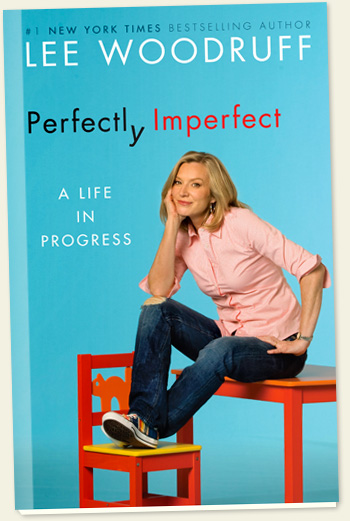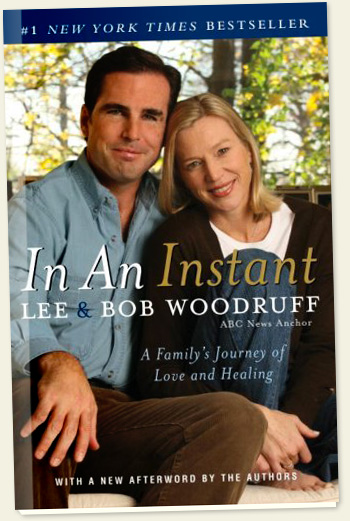The Dodgeball Dilema
 November 25, 2009
November 25, 2009  31 Comments
31 Comments
In our family, the game of dodgeball has become a kind of moral and ethical template by which we judge people’s character.
It all started with my nephew Collin at a family dinner. We were grilling him about a kid his age, someone we vaguely knew. “He’ s an OK guy,” answered my nephew, thoughtfully chewing his burger. “But he cheats at dodgeball.”
We got it. We all got it. Dodgeball, a game we all played in the summer, had become the arbiter of whether or not someone was a decent human being at their core, honest and ethical.
For those of you who don’t know, the game of dodgeball has made a comeback. There are even college teams. It’s kindler and gentler now and much more PC than when I was in middle school. You don’t try to nail the chubby girl in the back row who eats paste or the kid with duct tape on his glasses who picks his nose.
Dodgeball is a process of elimination; a survival of the fittest. It begins with organized chaos as two teams square off with dozens of balls being hurled in the air. Unlike baseball or basketball, where all eyes are on the person who has the ball, dodgeball has dozens of balls all flying around at the same time with the goal of nicking any body part below the neck. If you get hit, you are out. Pure and simple. In the craziness of the first few minutes, it is often one person’s word over another’s. This means it is largely up to the individuals to police themselves.
There are those that get hit and try to get away with it. There are some who fight the call when challenged. Others give in and slyly slink off when called on the carpet. And then there are those who immediately come clean when they’ve been hit. Even when no one is watching, they pull themselves out of the game and onto the sidelines.
As a parent, I aspire to raise one of those kids. Oh, I’m well aware that cheating at dodgeball doesn’t mean a kid is destined to a life of robbing banks, kiting checks or pulling the legs off flies. But I found it interesting that my own nephew had arrived at the dodgeball test on his own. I like the fact that one teen could identify a kind of touchstone to determine the stuff of which his peers were made.
I recently watched an R-rated movie with my daughter and two of her friends. It was mostly inappropriate humor but I made sure to ask both kids if this was OK with their parents. I was impressed when each girl wanted to call their mothers to double check.
When I commented to my daughter about how wonderful it was that her friends did this, she immediately jumped on me. “Mom, I have never seen an R rated movie ever. And I would always ask you first,” she huffed defensively. OK, she passed the dodgeball test on that one.
The dodgeball test may be one little marker, one silly way we can look at an element of a person’s character. But cheating at dodgeball is just one of many small but critical transgressions I see today that we need to remain vigilant about when it comes to our kids. So many of life’s little lessons are being lost in our haste to be “friends” with our kids, or unnaturally force our lives to be completely “kid-centric” (a term that makes the hairs on my forearm stand up).
By being afraid of drawing too many boundaries, we are letting slide a lot of opportunities to teach good old-fashioned citizenship and manners. Like the dodgeball test, we can all be judged by an aggregate of the little things; respect for the elderly, giving up your seat on the train, looking people in the eye, delivering a firm handshake. As parents, we get sick of nagging about these things, but in the end, their presence or absence tells us something about an individual. I have a warm spot in my heart for a young man who calls me Ma’am, even though it makes me sound like an ancient crone.
I want my children to understand that there are consequences for actions. That means we need to follow through with our threats, not make the hollow remarks I hear screamed at kids in the grocery store aisles.
There is a famous parenting story about a family traveling to Disney World. Maybe you know this one, although I wouldn’t be surprised if it is an urban myth. Exasperated by the dreaded “when will we be there” question, the parents told the kids if they asked one more time, they wouldn’t be able to go to Disney World. Legend has it when little Johnny broke the rule, they stuck to their guns. They had to. The miserable parents went to the park by themselves all day, hiring a sitter for the kids in the hotel room.
I know I sound just like the grandmas of a generation before, cluck-clucking at that hip-swivelin’ rock’n’roll music. Or, heaven forbid, I sound like Tipper Gore sounded to me in the 80s about record lyrics, until I had my own kids and listened to some of the misogynist bondage rap stuff on the radio one day. I began to channel Tipper Gore that day, taking back everything I had ever muttered about her and freedom of speech.
When we lived in Phoenix in 1995, in the span of two weeks I left my wallet on top of my station wagon twice and drove away. Those were really exhausting days with two kids under four and a full-time home business. The second time it happened, I set the wallet on top of the car as I wrestled both kids into their car seats and then drove away. When I got home, I realized immediately what I had done and burst into tears.
Lo and behold, the phone rang a few hours later. A man had found the wallet and he lived 20 minutes away in what I knew to be a somewhat shady neighborhood. I was making bets that the money was gone and I was furious with myself because I had just been to the cash machine and withdrawn my bi-weekly budget. Planning on giving him some of the money in my wallet as a reward, I also stopped and bought a 12-pack of beer. I figured in his hood they could all have a little party.
When I rang his bell, clutching my two kids to me in the dark, the man who answered the door was in flowing robes, with a top knot of hair. I quickly reached into my limited knowledge of Eastern religions and dimly recognized that he was a Sikh. As I thrust the beer at him in gratitude, he practically jumped back in disgust. “We don’t drink in our religion,” he said. And my humiliation at my sanctimonious neighborhood profiling was complete. The wallet was intact, with every dollar accounted for.
One thing I knew for sure. If that man, the one who found my wallet on the asphalt of the grocery store parking lot, had been tagged out in dodgeball and nobody saw him? He would have quietly taken himself out to the sidelines. Can you say the same?







